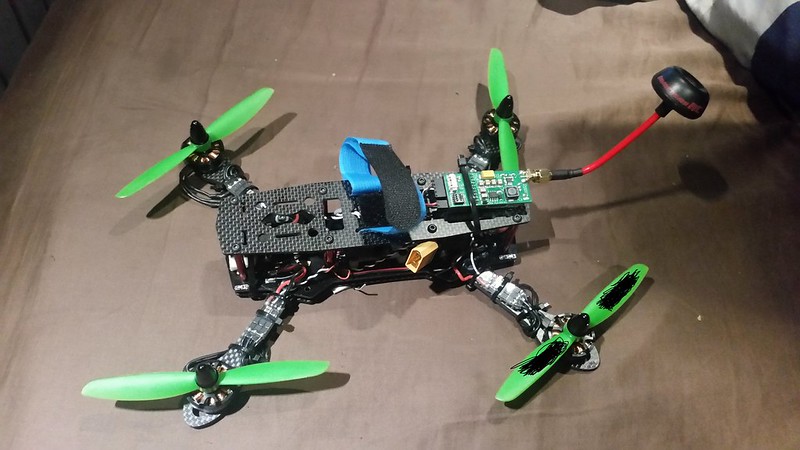Trucker Diet Need Help
Topic 12113 | Page 1

I drink large amounts of ketosoy but i have a cooler to make it easier to keep around once it's made. If you aren't diabetic you could consider soylent or any other version of full nutritious meal replacement drinks. The advantage is, if i'm busy and don't have time to even make food i just open up the cooler and drink in my calories.

I have meal replacement drinks at home but I haven't went home since I got out of orentation 3 1/2 weeks ago.. Would the muscle milk drinks be ok to drink since they have allot of protein?

We have not started trucking yet but one thing we intend on having stocked a lot of will be walnuts, peanuts, cashews and fruit. Some of those nuts help reduce cholesterol. You have to be careful about eating trail mix because it is loaded with calories too. It is a better choice than chips etc. I have also read you should eat before you get hungry so you will have more control over what you do eat. I dont know if you have a microwave or what to cook in the truck, but that would be helpful. Popcorn would be another snack food you could have. Definitely drink plenty of water and if you can find some organic lemons, it is good to cut one up and let it sit in 2 ltrs overnight and drink that in the morning, that is great for a detox and metabolism. I have found lemon water helps with hunger too.
HOS:
Hours Of Service
HOS refers to the logbook hours of service regulations.
Well those have some chems that are designed for muscle growth, and they don't include all of the micro nutrients required to sustain you, but it's better than nothing. Also those taste terrible to me  soylent would be closer along the lines of drinking ensure, but i know for some reason they target ensure to old people for some reason.
soylent would be closer along the lines of drinking ensure, but i know for some reason they target ensure to old people for some reason.
HOS:
Hours Of Service
HOS refers to the logbook hours of service regulations.
I don't have anything to cook with in the truck because I don't know what is good and bad or what to get... I'm going to get a microwave and a fridge forsure but this is the first job I have in the otr side of things so I am learning slowly....
OTR:
Over The Road
OTR driving normally means you'll be hauling freight to various customers throughout your company's hauling region. It often entails being gone from home for two to three weeks at a time.

Yea iv tried ensure , special k , and slimfast before but quit because I like food to much but need change that so I'm trying to learn to be more healthier

Hey Robert, how bad do you want to lose weight?
My suggestion is to make it the most important thing you have to do and not forget about it. Everyday. No soda at all. No candy at all. If your only option is a hamburger then don't eat. Drink water instead.
In fact, sleep more than anything and drink water all day. I know you're trucking and you don't want to pee so much but water and sleep are the two main things by far. I'm 162lbs and I drink up to 1/2 gallon of water by the time I've been awake for 90minutes and I don't eat until at least 1 hour after hydrating. Then I'll finish that gallon by the end of the day and preferably drink more.
Easy things to eat without cooking or keeping a fridge in the truck include copious amounts of whatever nuts you can tolerate in abundance. Tuna and salmon are easy to stock up on. I do bread, hummus, cheese, avocado, and whatever else I want to slap on there. Things like sandwich meats, yogurt, and other refrigerated products are typically good for a couple days assuming your truck isn't 80+ degrees inside. Trust me; I know. I used to backpack eggs and not cook em until I was 4 days out in the wilderness just because I could. Speaking of which, nothing wrong with eating the same things over and over with military discipline. Maybe oatmeal (no sugar) for breakfast everyday. People on a serious budget or Spartan diet do nothing but beans and rice which is real easy to cook.
Don't worry about stocking up on protein. I personally don't think you need to count calories and fat either. Just don't let your discipline fail when you get groceries and when you get hungry.
Feel free to message me if you need more ideas
DWI:
Driving While Intoxicated
Wheat bread instead of white bread, preferably multi grain or whole grain. As SamTom said, lots of nuts, although she left out almonds. I am an almond fanatic, and prefer almond milk over regular milk, but that can be a little pricey. But mostly, I eat A LOT of chicken, and vegetables. I have seen some great frozen chicken meals that are pretty healthy, overall. Just gotta watch the sodium content.
My biggest advice would be to watch out for the processed foods. Stay as close to fresh as possible, in any choice you make. Apples, Bananas, are great, and keep well unrefrigerated. dehydrated fruit chips when you just need a snack. Even the occasional cliff bar works too.
I am type 2 diabetic, so I try to really loom for low carb solutions. Also, as far as muscle milk, well, uggghhhhhh, can't stand the stuff!
Welcome to the OTR side of things.
Stay safe
OTR:
Over The Road
OTR driving normally means you'll be hauling freight to various customers throughout your company's hauling region. It often entails being gone from home for two to three weeks at a time.
New Reply:
New! Check out our help videos for a better understanding of our forum features

















Preview:
This topic has the following tags:
Advice For New Truck Drivers Food & Eating On The Road Items To Bring On The Road Truck Driving Lifestyle







 TT On Facebook
TT On Facebook
I have been driving for 5 years in the oil field so from bad sleep and eating what I could because I was running mad hours.... I have gained like 75 pounds so I weigh around 300 pounds and that's not good. Now I am running for a regional /OTR company so I get sleep at night or day. I need help or advice on what I should keep in truck to eat and snack on. I do not have a refrigerator or cooler yet so it might make things harder.... But any advice is grateful and appreciated. I just don't know what is good foods and bad but I know candy and fast food is bad stuff and I seldom drink coffee but I do drink one or 2 soda a day.
Regional:
Regional Route
Usually refers to a driver hauling freight within one particular region of the country. You might be in the "Southeast Regional Division" or "Midwest Regional". Regional route drivers often get home on the weekends which is one of the main appeals for this type of route.
OTR:
Over The Road
OTR driving normally means you'll be hauling freight to various customers throughout your company's hauling region. It often entails being gone from home for two to three weeks at a time.